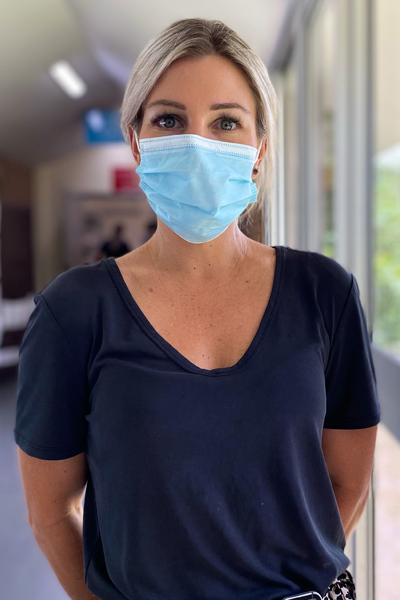
Caboolture Hospital Dietician Stacey O’Donnell.
Caboolture Hospital Dietitian Stacey O’Donnell has led the charge on an adult eating disorder project to ensure patients who need specific or additional healthcare never slip through the cracks.
“Eating disorder patients that aren’t getting the care they need can be medically unstable and become a huge risk if they don’t have access to the specialists they need,” she said.
“I’ve been looking at streamlining across the hospital how we align with evidence-based practice set by state guidelines,” Stacey said.
“I conducted a project auditing inpatient eating disorders and how they’re managed across the different departments, we had a great number of responses from nurses, psychologists, doctors and others who provided feedback on how we could better manage patients of this cohort.
Stacey says the team took that data and developed localised guidelines for Caboolture Hospital that will allow departments to make a real improvement to the way they work together to deliver care to eating disorder patients.
“After we established the local guidelines, we then determined clearly defined roles and responsibilities for the different hospital teams.
“Following this we finalised an improved triage process so patients who need support for eating disorders can get what they need during their stay.”
Stacey’s project will help capture all the patients who need specialised assistance and, at times, medical refeeding – a process that ensures those undernourished or malnourished eat properly in a step-by-step way.
“Slowly returning of feeding is the safest way to return to eating and this, combined with evidence-based practice guidelines, means that the patient is less likely to relapse.
“This project has really taken off… we’ve already had interest from all over Queensland.
“We’re developing modified versions to suit other health services around the state.”
Stacey’s project was kindly funded by CAHRLI.